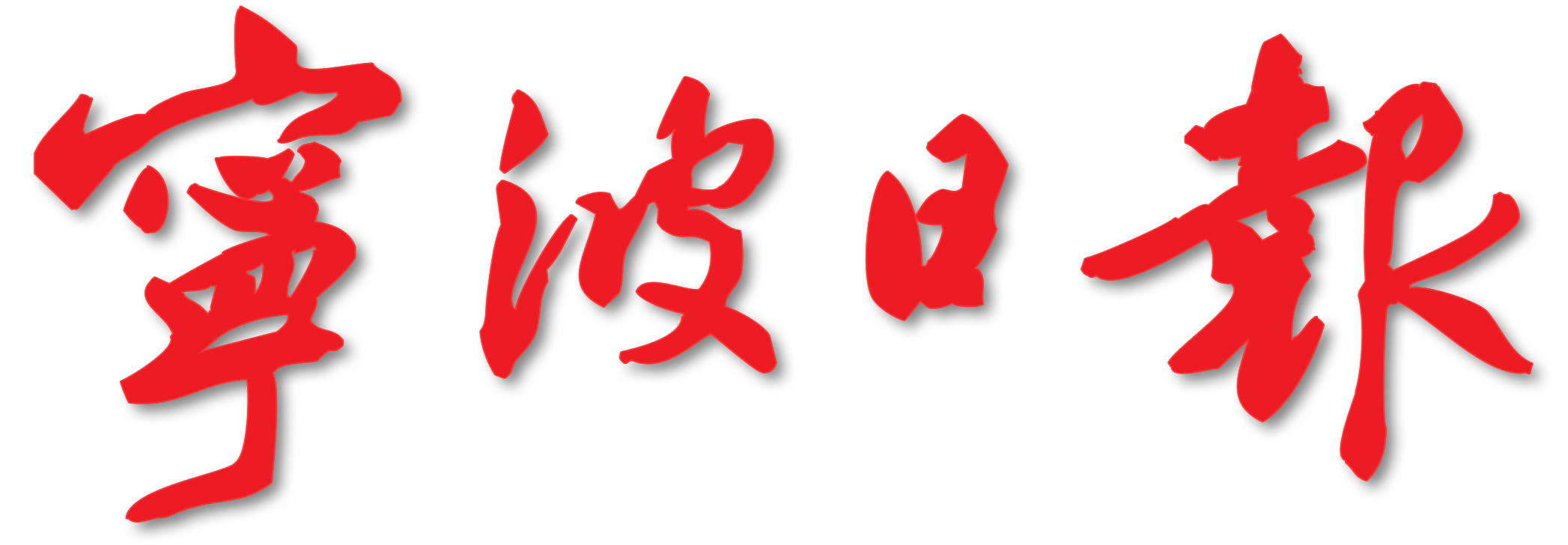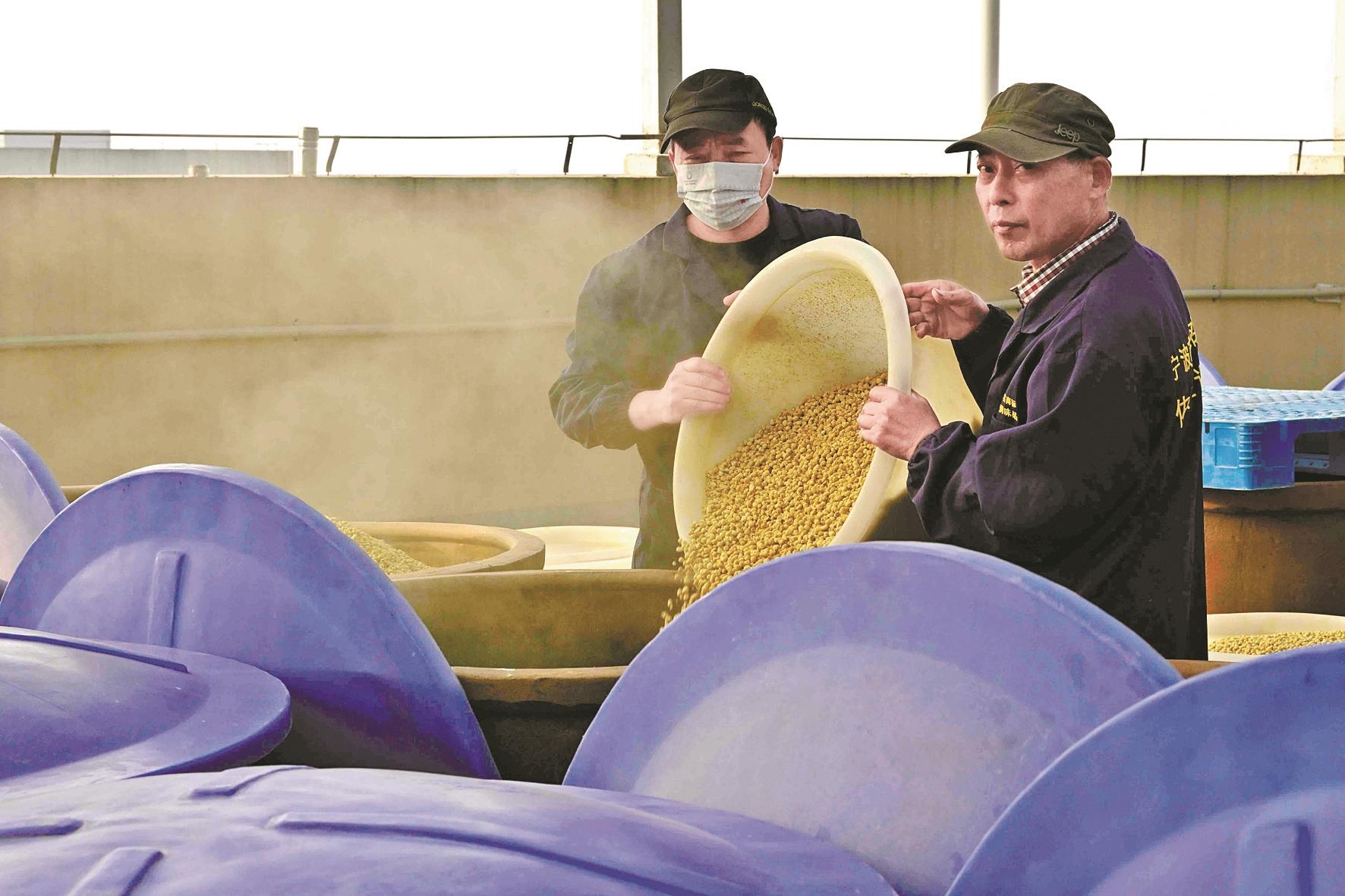By Jin Yuhan
For Ningbo's heritage food brands, entering overseas markets often starts with something simple —soy sauce, yellow rice wine, or pickled mustard greens.
Zhong Yaofei, General Manager of Ningbo Lou Mao Ji Food Co., Ltd., a century-old soy sauce company, has been busy preparing for that next step. After securing EU trademark registration in late July, he is now charting a strategy for entering the European market.
"We want international customers to taste the real flavors of China," Zhong said — a sentiment shared by many leaders of Ningbo's long-standing food companies.
According to the Ningbo Time-Honored Brands Association, the city is home to 153 "time-honored" heritage brands, including 12 designated as national-level and 49 as provincial-level in Zhejiang. About one in eight have ventured overseas, most of them in the food industry.
Two Decades of Global Outreach
Lu Chaoyan, chairwoman of Ningbo Xin Ziyuntang Aquatic Food Co., Ltd., said her company began exporting seaweed in the early 2000s and added pickled mustard greens to its overseas lineup about a decade later.
"Most shipments go to Malaysia and Singapore, with annual exports worth around 5 million yuan—about one-sixth of our total revenue," Lu noted.
Ningbo's food exports trace back more than 20 years, initially driven by demand from overseas Chinese communities. For example, Ningbo Yinfa Green Food Co., Ltd. received its first order from the United States in 1993, when Chinese residents there reached out seeking a taste of home. Lou Mao Ji followed in 1999, exporting soy sauce to Mauritius to serve the local diaspora. And in 2013, Ningbo Jaragou Food Co., Ltd. entered the retail market, later shipping its first container of traditional specialties to North America in 2016.
New Circumstances Call for New Tactics
In the beginning, Ningbo's traditional foods reached foreign markets largely in response to requests from abroad. Some brands, however, have taken a more proactive approach. Ningbo Yimin Wine Co., Ltd. is one example.
Intense competition in China pushed the company to explore overseas markets in 2003. A year later, its yellow wine made its debut in the US. "While the change was driven by necessity, it quickly paid off," said General Manager Xue Dunyao. "In 2018, US Customs data ranked our brand first among imported Chinese cooking wines." Today, the company's annual export sales remain steady at about 35 million yuan.
Others are now making a similar shift. Lou Mao Ji has begun moving from a passive, order-driven model to active expansion. With exports in the first half of this year falling to just a quarter of last year's volume, Zhong acknowledged that relying on existing customers was no longer enough. A turning point came when Lou Weina, a seventh-generation descendant of the brand's founder who lives in France, returned to Ningbo. Struck by the company's new fruit vinegar, she encouraged the team to market it in Europe.
After an eight-month application process, Lou Mao Ji secured EU trademarks across multiple classes. "Our goal is to enter the European market next year, with fruit vinegar as our flagship product," Zhong said.
Challenges on the Horizon
Despite decades of effort, Ningbo's food companies still face an uphill climb in global markets. Executives often express more caution than confidence. Many say overseas orders remain small and irregular, with most international business limited to OEM processing for other brands.
While overseas Chinese communities provide a steady customer base, orders are modest, and breaking into mainstream markets has proven difficult. "Annual exports have hovered around 5 million yuan for years, almost entirely dependent on the diaspora. Expanding beyond that and gaining wider acceptance is tough," one industry executive said.
For many smaller firms, OEM remains a pragmatic option, offering simplicity, lower costs, and stable income. Even so, the ambition to market homegrown brands abroad remains strong. Ningbo Liyang Wine Co., Ltd., which has held export certification for four years but still lacks major clients, plans to showcase its liquors and fruit wines at the Marca China Private Label Fair in Guangzhou this September, hoping to connect directly with international supermarket suppliers.
Expert Insights on International Expansion
Not every heritage brand is suited for international expansion, experts caution. Liu Qiang, a specialist on heritage brands, said prerequisites include strong management, consistent product and service quality, brand recognition, market fit, and competitive pricing. Careful research into consumer demand and well-tailored localization strategies are also essential.
For companies that do qualify, preparation means tackling issues such as international branding, compliance with global food safety certifications, and intellectual property protection.
"The essence of taking heritage brands abroad is exporting both culture and commercial value," a representative from the Ningbo Municipal Commerce Bureau said. "Success requires balancing tradition with innovation, and finding a clear market position."
Zhang Kong, president of the Ningbo Time-Honored Brands Association, agreed, adding that the path forward lies in stronger cultural storytelling and fresh approaches to products, consumer experiences, and marketing channels.



